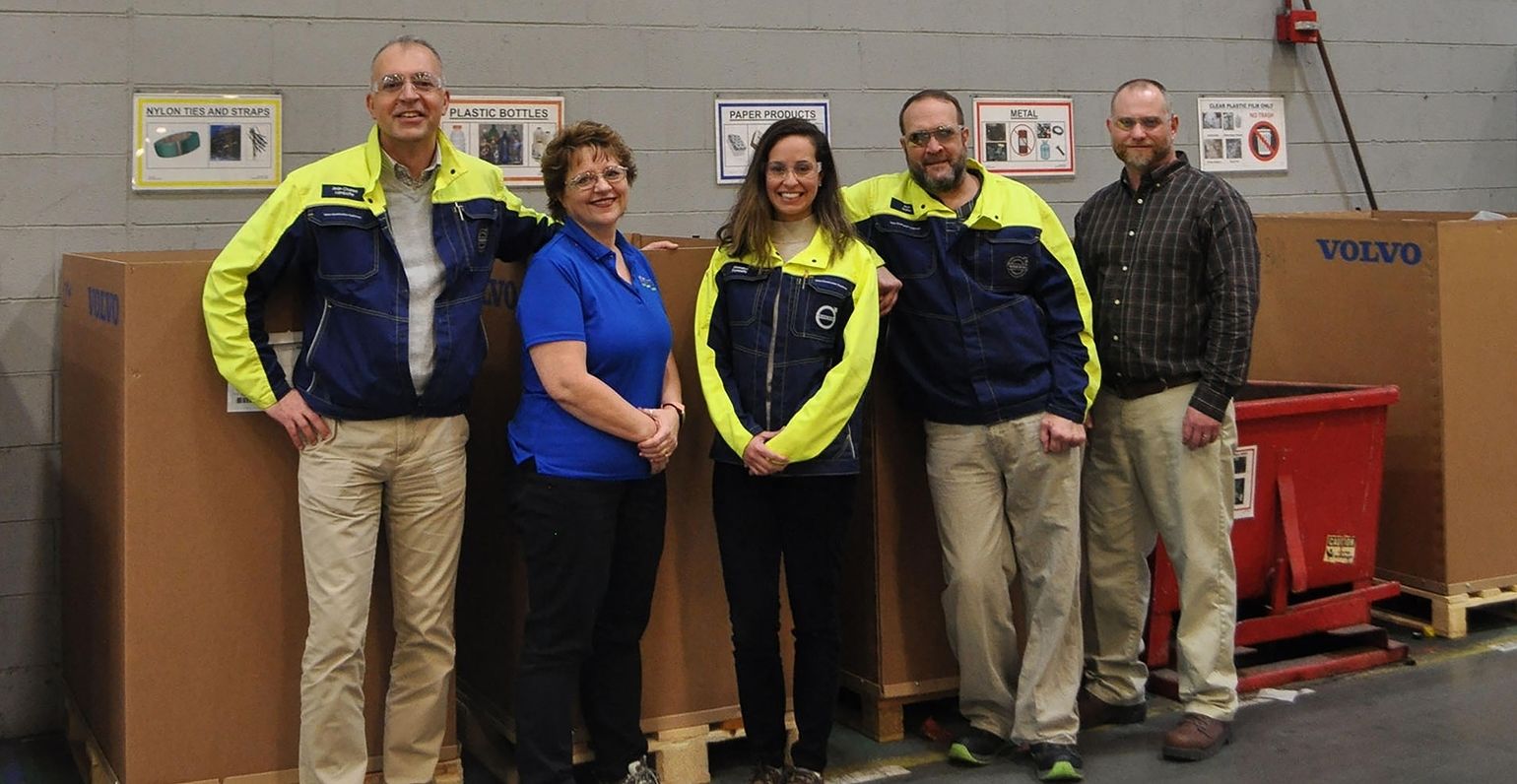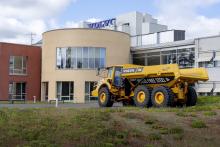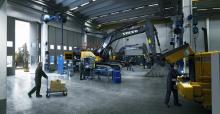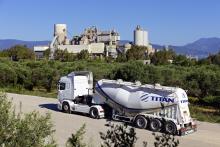
The construction equipment company says the achievement of moving to zero waste disposal at the US site has taken place over an eight-year period.
In 2012, office and shop floor areas increased their recycling efforts from multi-stream recycling to an efficient single-stream recycling process. By 2016, the site had implemented composting of pre-kitchen waste, wood pallet recycling, plastic foam and rubber scrap recycling and eliminated one trash compactor that was designated for landfill disposal.
In 2017, all buildings and offices transitioned to multi-stream recycling. Landfill waste began shifting to a Waste to Energy (W2E) facility in York, Pennsylvania, where it is incinerated at high temperatures, producing steam that then powers turbines to produce electricity. By the end of 2018, all waste was fully diverted from landfill.
The construction and demolition industry in the US created almost 570 million tons of waste in 2017, according to the Environmental Protection Agency (EPA).
Volvo CE's facility in Braås, southern Sweden – which specialises in the design and manufacturing of articulated haulers – became the first Volvo CE site to become carbon-neutral in 2017, and now the North America Shippensburg facility is following suit in becoming zero-landfill.
The Volvo CE Shippensburg facility consists of seven stand-alone buildings on 192 acres, with a total area of 838,342 ft² under roof. The site employs over 800 people.
"The journey to zero landfill didn't happen overnight but was instead a precisely designed and informed process that took place over a few years," said Rich Halter, safety and environmental manager. "The transition was supported by our waste service provider – Waste Management."
The company says the success of this project is in part due to how the Volvo Core Values team conducted the operation in coordination with employees. The team worked closely to involve departments across the Shippensburg site in supporting the move to a zero-landfill facility. It adds that they helped empower employees to make good decisions and do the right things, giving everyone at the facility and sense of ownership and shared success.
Volvo CE says the outcome of this work is not just zero-waste, and there have also been significant reductions in costs for waste handling. In six years, the site saw its waste handling costs slashed by over 50%. In 2019, the site recycled 1,171 tonnes of cardboard, paper, wood, scrap metals and plastics.
Putting the Shippensburg site's achievement into perspective, in 2017 more than half (52%) of the solid waste in the U.S. was still being diverted to landfill, versus recycled or converted to energy, according to the EPA.
Volvo CE says it plans to make several other sites landfill-free by 2025 and all production sites landfill-free by 2030.










